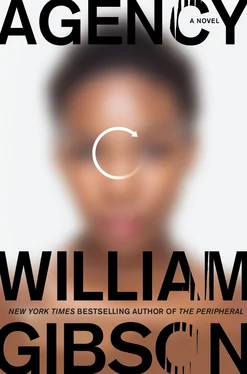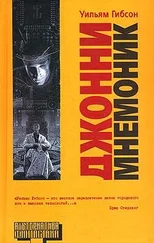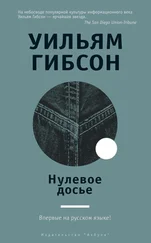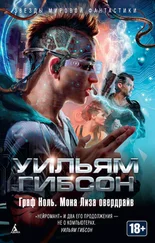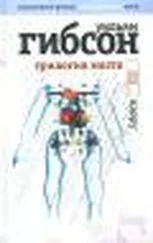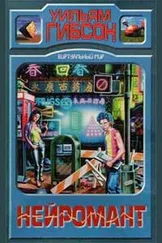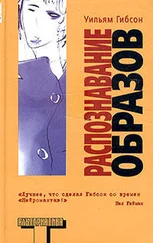“How are you?” Virgil asked.
“Okay.” She saw upright red toolboxes with drawers, behind him. Swung herself down.
He loosened the drawstring at the edge of the suit’s hood, drew the hood back. “Hold your breath,” he said, then unfastened the mask’s straps and removed it. “Okay to breathe.” She did, finding the odor of petroleum distillates surprisingly welcome. He unzipped the front of the suit, stepped behind her, and held the fabric at the shoulders, allowing her to shrug her way out. “I’m standing on the edges of the bootees,” he said. “Step forward and your shoes will come out.” She did.
“So. The Singapore deal fell through,” he said, behind her.
“Eunice’s advice.”
“Know why?”
“She had documents. All I know.”
The beige Fiat she’d seen on Valencia gleamed in the other bay, looking like it had just been washed and polished.
Virgil stepped from behind her, the suit draped over his left arm, mask in his right hand. “Good seeing you again.”
“You too, Virgil.”
“Take care of yourself.” He turned and walked toward the sunlight, the voices speaking Spanish.
Eunice’s Moldovan, Modigliani-thin, stepped from behind the Fiat. He did have the goatee, she saw, but it was so short as to barely be there. “Sevrin.”
“Verity,” he said. He opened the front passenger door for her, she got in, he closed it. “Head on knees, because they always have cameras. I fasten seatbelt behind you, silence alarm.”
She did, hearing the buckle click behind her.
Netherton, seated on the floor, watched Thomas gurgle at the nanny. Pandaform now, tripartite, each of its three resulting units was identically adorable. Prior to having Thomas, he supposed, he’d have found this gently bumbling trio no more agreeable than Ash’s tardibot, but now it delighted Thomas, and for that he thought the better of it.
“A lovely boy, Wilf,” Lowbeer said, from the kitchen table, where Rainey was pouring tea. “Has your mother’s eyes.”
Lowbeer having never met his mother, Netherton assumed she’d checked whatever Akashic record for eye color. It hadn’t occurred to him that Thomas’s eyes were particularly like his mother’s. “He has his own eyes,” he said, and rolled a plaid felt ball in his son’s direction. One third of the nanny lunged for it, toppling rotundly over in the process.
Neither would it have occurred to him to have Lowbeer up for tea. The invitation had been Rainey’s idea, her friend, at the last minute, having canceled their afternoon at the Tate.
“Wilf tells me,” Rainey said, putting down the teapot and taking the seat opposite Lowbeer, “that America, in your new stub, elected a woman president. Before Gonzalez. But that they aren’t necessarily that much happier than people were here, with the opposite outcome.”
“They don’t wake each day with renewed gratitude for that particular bullet having been dodged, no,” said Lowbeer, “but that’s simply human nature. Meanwhile, in a world still subject to the other key stressors in our shared history, and with a complexly leveraged international crisis, one potentially involving nuclear weapons…”
“Wilf,” Rainey said, sharply, “you haven’t mentioned that.”
“Only learned of it last night,” he said. “Didn’t want to tell you, last thing before bed.”
“What crisis?” she asked Lowbeer.
“One involving Turkey,” Lowbeer said, “Syria, Russia, the United States, and NATO. The new president finds herself in a position arguably worse than the one that confronted Kennedy in Cuba, in 1962. She has quite a solid grasp of brinkmanship, in my view, but the aunties’ best projections are quite grim.” Lowbeer stirred her tea. “You’re in crisis management yourself, Rainey.” She sipped. “As well as making an excellent pot.”
“Harrods Afternoon,” Rainey said.
“I’ve just sent you a précis of the crisis,” Lowbeer said. “Your sense of things would be most welcome, should you care to read it.”
“Thank you,” said Rainey.
Thomas began to cry then, rather halfheartedly, so Netherton moved to pick him up. The pandaforms, in rolling out of his way, became more spherical than he imagined any actual panda could.
19
Images of the Aftermath
When she guessed they’d gone two blocks, Verity sat up, bumping into a perfumed car tag she’d been smelling. At least he wasn’t wearing it. “What flavor’s this?” she asked.
“Champagne,” he said, “and bergamot.”
She didn’t feel like celebrating. Then they were under the bridge, always a weird feeling. As they emerged, he touched the dashboard media package. “—grievous act of terrorism,” the president said. “An entire busload of Turkish cadets, thirty in all, killed in an attack employing synchronized IEDs. We’ve all seen the images of the aftermath.” Verity herself, with considerable effort, had so far managed not to. “In retaliation, Turkey’s army shelled Kurdish locations along the border.”
“You called for an immediate ceasefire,” someone said, female, younger, British.
“Our intelligence community hasn’t determined responsibility,” the president said. “But when the YPG retaliated in turn, for civilian deaths in Qamishli, the response was an arguably disproportionate Turkish rocket attack, and we were well on our way to where we are today.” Sevrin touched the dash again, turning the radio off. “Old,” he said, disappointed, “last week.”
What the actual fucking fuck? Those were T-122 Sakaryas. Turkish MRLS. You know about this?
Verity nodded slightly, knowing Eunice would see the movement in the feed from the glasses.
And the Russians? Got their plane shot down and they’re threatening to use nukes? And we’re doing whatever the fuck it is we’re doing, you and me and whoever the hell else, in the middle?
“You’d kind of taken my mind off it,” Verity said, forgetting Sevrin. “Sorry,” she said to him, “phone.”
“No problem,” he said.
The fucking world could end, right now.
“That’s what everybody’s saying.”
I’m not everybody. I just found out I know mega-shitloads about the region. Some kind of serious area of specialization.
“That’s as sweary as I’ve heard an AI be,” Verity said, her gaze then meeting Sevrin’s in a mutual side-eye.
And with good fucking reason.
A feed opened, on Joe-Eddy’s living room. Someone at the workbench, not Joe-Eddy, his back to the camera, was surveying the hobby rubble.
Good to see you, Wilf,” Janice said, from her black mesh workstation chair, his phone’s feed provided by her device’s camera. She couldn’t see him, though he could show her what he was seeing, should he want to. “Rainey and the kid doing well?”
He’d forgotten about her having painted their living room Baker-Miller pink, an institutional shade once thought to reduce aggression in prisoners. Homeland Security had given the county drunk tank three more gallons than necessary, so she’d bartered a box of her preserves for them, at a community event. DHS had originally provided the shade because the drunk tank often housed particularly disoriented individuals, the county’s primary industry having until recently been the illicit manufacture of synthetic psychoactives. In spite of the claims made for it, Netherton himself had found it an unsettling hue, and did now. “Quite well, thanks. And you and Madison?”
“We’re good. What can I do for you?”
“I’ve a favor to ask,” he said, “though I assume it would actually be from Madison.”
Читать дальше
